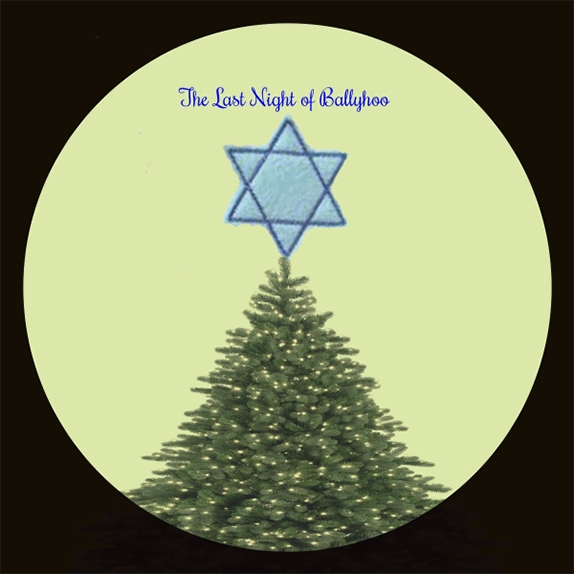
On Saturday night, I sat in an Albuquerque theater as actors discussed the hospital in which I was born, the street on which I lived, the store that my father managed—and it was all transpiring in my native city within eight months of my birth. As assimilated, non-practicing, non-believing Jews living in a city notorious for earlier incidents of antisemitism, my family could have been the subject of this play—except for the fact that unlike the play’s characters, my family never discussed Judaism. For two hours, the parallel tracks of fiction and life did indeed seem to meet, even if in the far distance.
Such was the moving but rather unnerving experience I had watching Last Night of Ballyhoo, an effective and affecting comedy being staged by Mother Road at the Tricklock Performance Laboratory.
The play, first performed during the Olympics in Atlanta in 1986 and revised for Broadway in 1997, was written by Alfred Uhry as part of a trilogy, including Driving Miss Daisy, dealing with the Jewish community in the South during the first half of the 20th century. When Ballyhoo moved to Broadway, it ran for 556 performances, winning a Tony and being nominated for a Pulitzer.
The comedy describes what happens to a family of assimilated, prosperous German Jews living in Atlanta when “the other kind of Jew,” an Eastern European immigrant living in New York, suddenly appears in their midst and begins to court one of the daughters.
The story transpires in December 1939 on “the most important day in the history of Atlanta,” when the Atlanta-based romance Gone with the Wind had its premiere. It also happens to occur just after Hitler conquers Poland and launches World War II.
The very first scene sets the tone as the Jewish characters discuss whether it is appropriate to keep a star on top of their Christmas tree. They decide the tree is such a good idea that it should be clearly displayed in the front window. Although “Jewish Christmas trees don’t have stars,” this tree keeps its star.
The five members of this Atlanta family have no Jewish traditions, and the two younger women don’t even recognize the names of Jewish festivals. In assimilation, the family found financial security but a deeper imbalance. “We’re Jews, but have no place in society,” complains the flighty college dropout Lala Levy (Bridget S. Dunne). Later she complains to her brighter and more successful cousin, “You’ve always gotten all the attention, even from God. He didn’t give you any Jewish features, and look at me.”
The Ballyhoo of the title is a black tie ball at a country club for conservative Jews. Suddenly all the characters are forced to confront their own form of prejudice, Jew versus Jew. This in turn leads to a moment at the end—the only moment in the entire play that I found unconvincing—when they collectively rediscover their Jewish roots.
The cast and director Steve Barberio (who doubles as president of the Mother Road board) have done an outstanding job of bringing this award-winning 1986 play alive on the contemporary Albuquerque stage. It takes little imagination to substitute Hispanic for Jewish and visualize the internal challenges of native New Mexicans choosing how to assimilate or to define themselves in the face of Anglo dominance and more recent Mexican immigration.
Catherine Haun and Bridget Kelly as the two mothers convincingly try to avoid confrontations behind the double veils of southern and Jewish denial. Kate Costello and Dunne as the daughters are about as different as two cousins can be. Isaac Christie’s New Yorker Joe Farkas is utterly convincing. Matthew Van Wettering is winningly absurd in the role of Peachy Weil, Lala Levy’s suitor. Finally William R. Stafford faultlessly enlivens the character of Adolph Freitag, a hard businessman with a touch of softness.
The director, however, did not give this fine cast its due at the play’s conclusion. Gathered together in a tightly knit group, they freeze for a moment as the lights come up. The audience is not sure if the play is over. Then just as tentative applause begins, the actors walk off stage. They never take a bow. They deserve better.
Last Night of Ballyhoo continues Thursday-Saturday at 8 p.m. with its last performance Sunday Dec. 28 at 2 p.m., at Tricklock Performance Laboratory, 110 Gold St. SW in Albuquerque. For tickets and information go to motherroad.org. Free parking is available at the garage at 241 Second St., just around the corner from the theater.



Responses to “When fiction meets life: “Last Night of Ballyhoo””